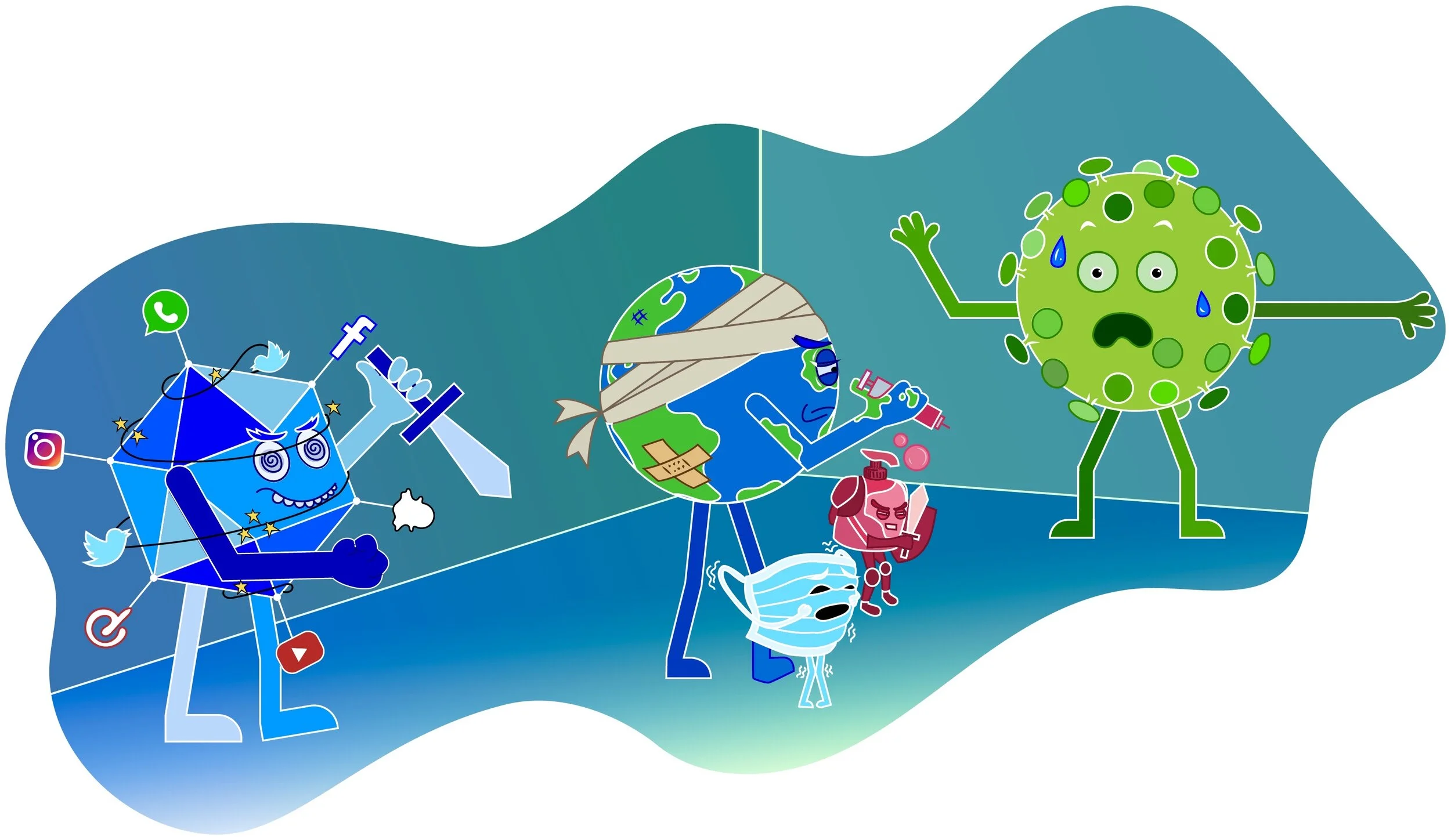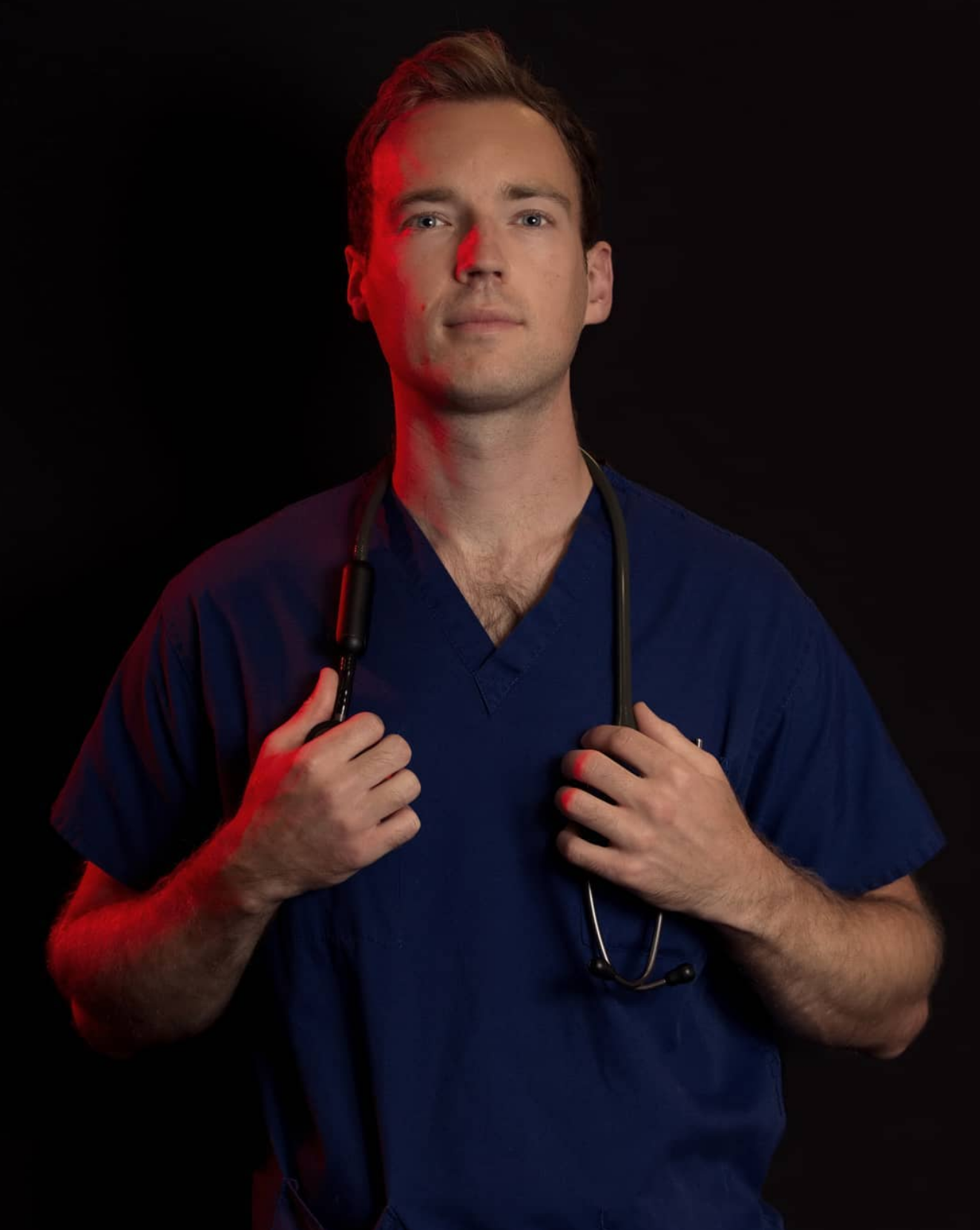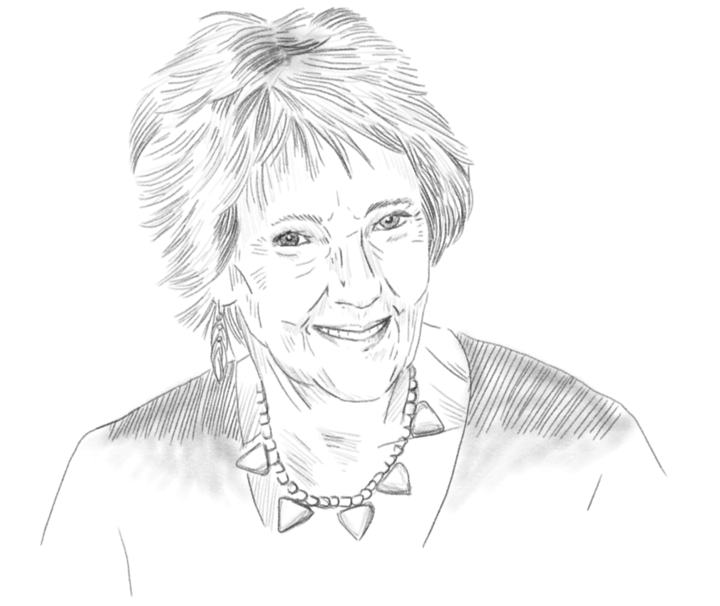In March of this year, I had to embark on this “daring task” too but not for any of the reasons mentioned above but rather in order to escape from months of being stuck in a foreign city with minimal to no support, in case a full lockdown was announced (which it later was!). I was definitely not the only one, several international students were in the exact same position, some being repatriated on government planes back to their homeland while others rushed to find tickets before borders closed.
Who Watches the Watchmen?
As Barts approaches its 900th Anniversary in 2023 there’s a great deal happening in the oldest part of the hospital to help make its history more relevant than ever to the needs of the 21st century.
The COVID-19 Infodemic
A pandemic. Mass technology. A recipe for disaster. 5G radiation caused the Covid-19 pandemic. Hydroxychloroquine is the cure for Covid-19. The virus was genetically engineered in a lab in China. Drinking cow urine can cure Covid-19. Bill Gates wants to use a vaccination program to implant digital microchips that will track and control people. Taking six deep breaths and then coughing while covering one’s mouth will cure Covid-19. Consuming garlic, onions and turmeric prevents the virus. Covid-19 doesn’t actually exist.
QM cuts Global Health course in the Middle of a Pandemic
The Barts and The London Global Health course is only 1 of only 3 BSc’s of its kind in this country and one that prides itself on widening participation and increasing access, especially for marginalised groups.
A Pandemic within a Pandemic
Lockdown was a controversial measure, then and now, hotly debated with some countries like Sweden outright rejecting the idea. However, it worked to a degree for us; cases of COVID went down and the death toll slowly but surely receded, before measures were reversed. However there is a disease which thrived during our brief stint with lockdown: violence.
We Need to Talk about Periods
It’s not a surprise to anyone that Women’s Health, and associated issues, is an oft neglected part of medicine. One area of women’s health that is very present in public discourse now is periods. However, within healthcare education, this conversation is still lacking. So, what conversations should be happening and why aren’t they? I conducted three interviews to look at these questions.
#Medbikini
If this hashtag means anything to you, you'll know that what is about to follow is a very justified rant. For those whom it does not here is a recap; an article was published in the Journal of Vascular Surgery titled "Prevalence of unprofessional social media content among young vascular surgeons". In this study, young vascular surgeons’ social media accounts were screened, using fake social media accounts created by the authors.
A 'Barts and The London Level' Response
It is only fitting then, that the benches in the Square of St Bartholomew's played host to another conversation
Diary of an FiY1
If you stand by the fountain at St Bartholomew’s Hospital and look upon the hospital, you look upon a site that has lived through the black death, Spanish influenza and two World Wars. Now that list includes COVID-19, the inescapable phrase on everyone’s lips as the UK works through the greatest health crisis of our lifetime.
Bereft
The beginning of summer, I am working with the bereavement team at The Royal London Hospital packing boxes with the possessions of deceased patients, I am working with my friends and living by myself in London. The end of summer, I am back at my family home, the leaves turn from green to yellow and we receive a call at 2 am to notify my family of my grandmother’s death.
In Conversation with Professor Charles Knight, CEO of St Bartholomew's Hospital & Nightingale Hospital London
Professor Charles Knight OBE is the CEO of St Bartholomews Hospital, and was seconded to be the CEO of the Nightingale Hospital London at the ExCeL as the first wave of the COVID-19 pandemic reached its crescendo. We spoke to him about his experience during this turbulent time, and about what we, as a health system, could learn from these last few months.
Movember and Feminism: How I found my identity as a feminist within a male-centric initiative
Movember: November’s gift to moustache lovers. The Movember Foundation was founded in Australia in 2003, by a couple of mates who decided that moustaches would be the way to spark conversation about men’s health, and they were seemingly onto something, having garnered over 6 Million advocates throughout the next 17 years.
A Brief Intro to Global Health
There is no definitive definition of Global Health. In fact, if you ask 5 different people within the field (or even a class on campus) you will get a different response each time. Unlike many other scientific discourses, it bridges the gap between science and the traditionally labelled, ‘humanities’ to build a multivariate picture of an environment or circumstance; it is in its simplest form, an interdisciplinary approach to health and medicine.
Write in our Next Issue - 'Going Viral'
Submissions are now open for our first print issue of the year, ‘Going Viral’! The deadline for any submissions is the 2nd of November 2020, and will be printed for release in late November.
Why Should You Volunteer As A Student
Congratulations to all our new incoming Barts and the London students, we look forward to welcoming you! As a fresher, you must be excited to embark on your journey as a student here. Entering a new environment comes with a plethora of new opportunities, one of which is volunteering.
Freshers Freeze
Anyone who has ever sweated over an exam or a looming deadline knows what stress feels like. Chaos. Sheer panic. Time and space disentangle, and cortical executive functions dissolve away with surging levels of adrenaline and cortisol. Everything freezes. “Freshers Freeze”, may be an even more common occurrence than the infamous “Freshers Flu”.
Q&A with Dr. Adwoa Danso (@TheClinicDiaries)
Our guest in today’s interview is Dr. Adwoa Danso. Dr. Danso is a GP and runs The Clinic Diaries – a social media platform that discusses health and clinical issues, and where she has recently been using this space to be vocal on BLM and COVID-19.
Spilling the Beans on Caffeine
From the French Emperor, Napoleon Bonaparte, who declared “I would rather suffer with coffee than be senseless”; To the American- British poet, T.S. Eliot, who said “I have measured out my life with coffee spoons”.
Tracking Down the COVID App
At the height of lockdown way back in April, we were promised a contact tracing smartphone app that would help us fight against coronavirus and emerge from lockdown safely. Now 5 months (and a growing second wave) later, we’re at last being delivered an app.
From RAG to Pitches: What Our Clubs Have Been Up To Over Lockdown
From weekly training sessions, matches and socials to running virtual training sessions and hosting zoom quizzes, a lot has changed for our sports clubs due to COVID-19. I caught up with some of the BL Sports Clubs to see what they’ve been up to since March.




















